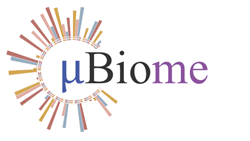UCSF Researcher to Investigate Diabetes and the Microbiome in Filipino Populations with uBiome Microbiome Impact Grant
uBiome, the leader in microbial genomics, has awarded a Microbiome Impact Grant to a University of California, San Francisco study that explores how the risk of developing Type 2 Diabetes is affected by country of residence in the Filipino population.
 Microbial genomics leader uBiome has awarded a Microbiome Impact Grant to Dr. Mark Seielstad of the University of California, San Francisco. Dr. Seielstad will investigate how patients’ risk of developing type 2 diabetes is affected by where they live.
Microbial genomics leader uBiome has awarded a Microbiome Impact Grant to Dr. Mark Seielstad of the University of California, San Francisco. Dr. Seielstad will investigate how patients’ risk of developing type 2 diabetes is affected by where they live.
In partnership with the Philippine Genome Center, Dr. Seielstad will study the gut microbiome of Filipino type 2 diabetes patients in Manila and San Francisco, comparing them with an equivalent number of healthy control subjects in each city.
Worldwide, nearly 500 million people suffer from diabetes, and 80 percent of these live in low- and middle-income countries. Dr. Seielstad hopes to cast light on differences between the microbiomes of diabetes patients in the the US and the Philippines.
Dr. Seielstad is Professor of Epidemiology & Biostatistics, Laboratory Medicine, and Human Genetics at the University of California, San Francisco. Dr. Seielstad received his undergraduate degrees in Biology and Classics from Stanford University, and earned his PhD in Biology at Harvard University. He also served on the faculty at Harvard. Before joining UCSF in 2009, Dr. Seielstad was Associate Director at the Genome Institute of Singapore. His research work spans epidemiology and population genetics, much of it involving the investigation of geographically diverse human populations that are also the focus of anthropological investigations that seek to characterize the global distribution of genetic variation.
Through the use of next generation high-throughput DNA sequencing, uBiome produces detailed analyses of the human microbiome, the collective term for the ecosystem of many trillions of microorganisms that live both in, and on, the human body. Many of them play important parts in the support of life. Some bacteria, for example, permit the digestion of foods that the body itself cannot process. Other bacteria enable vitamins to be synthesized.
uBiome recently launched SmartGut™, the world’s first sequencing-based clinical microbiome test, a doctor-ordered, insurance-reimbursable test processed in its CAP-accredited lab, which is indicated for patients with chronic bowel issues.
Award winner Dr. Mark Seielstad, Professor of Epidemiology & Biostatistics, Laboratory Medicine, and Human Genetics at the University of California San Francisco, notes: “Our main interest in this study with uBiome is to understand the impact of the early birth environment versus current environment on both the microbiome composition and the risk of type 2 diabetes (T2D). Previous studies in mice have suggested that the microbiome composition is established in early infancy and is relatively stable through life. At the same time, epidemiological studies in humans have indicated that environmental/nutritional conditions during pregnancy and early infancy can affect the risk of T2D in adulthood. Is this partly driven by or reflected in the microbiome? By comparing Filipino Americans who were born in the Philippines and moved to the U.S. with Filipino Americans who were born in the U.S., together with Filipinos who have lived entirely within the Philippines we hope to gain insight into this question. In light of rapid and dramatic economic growth throughout Asia and the resulting changes in diet and the environment, the risk of diabetes is rising dramatically in this region and uBiome’s support of research in this important area is quite timely.”
Dr. Zachary Apte, CTO and co-founder of uBiome, and Adjunct Professor of Biochemistry and Biophysics at the University of California, San Francisco, says: “Our scientific review committee was deeply impressed by this important study that will explore type 2 diabetes. As part of uBiome’s commitment to supporting academic microbiome research, we’re happy to contribute to his important work.”
Founded in 2012, uBiome is the leading microbial genomics company. uBiome is funded by Y Combinator, Andreessen Horowitz, 8VC, and other leading investors.
uBiome’s mission is to explore important research questions about the microbiome and to develop accurate and reliable clinical tests based on the microbiome.
Contact:
Julie Taylor
julie(at)ubiome(dot)com
Ph: +1 (415) 212-9214
- Login to post comments